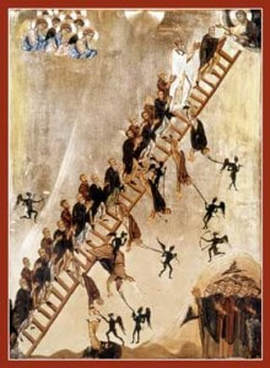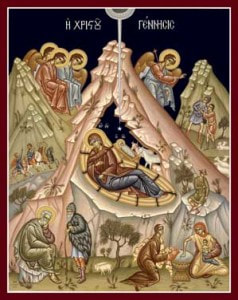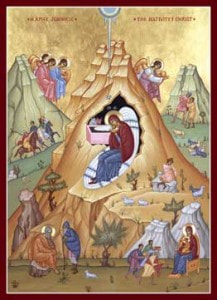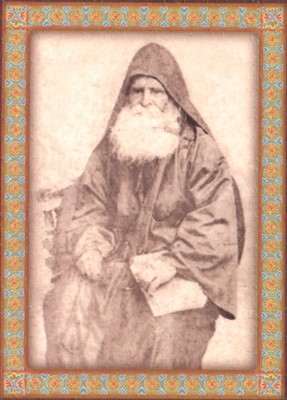|
Christ is Risen!
from the sermon, “Christ is Risen!” by Philaret, Metropolitan of Moscow, originally published in “Select Sermons by the Late Metropolitan Philaret of Moscow” London, J Masters, 1873 Is it right to convert into an amusement and pastime that joy which was won for us through sacrifice and suffering? “Christ our Passover is sacrificed for us. Therefore, ” concludeth the Apostle, “let us keep the feast, not with the old leaven of malice and wickedness, but with the unleavened bread of sincerity and truth.” “Let us walk honestly, as in the day; not in rioting and drunkeness, not in chambering and wantones, not in strife and envying. But put ye on the Lord Jesus Christ.” He hath sufficient light and incorruptible joy, for all and each, so that none need pass by Him in search of illusive splendour, nor need an immortal soul seek its food in corruption. Seek ye then your joy ever in its true source. “Rejoice in the Lord always; and again I say, Rejoice.” Amen. The Scripture references for the above, in order, are: I Corinthians 5:7,8; Romans 13:13,14; Philippians 4:4
2 Comments
Then, while the bridegroom tarried, they all slumbered and slept. He shows that the time intervening will not be short, leading His disciples away from the expectation that His kingdom was quite immediately to appear. For this indeed they hoped, therefore He is continually holding them back from this hope. And at the same time He intimates this too, that death is a sleep. For they slept, He says.
And about midnight there was a cry made. Either He was continuing the parable, or again He shows that the resurrection will be at night. But the cry Paul also indicates, saying, With a shout, with a voice of an archangel, with the last trump, He shall come down from Heaven. And what mean the trumpets, and what says the cry? The bridegroom comes. When therefore they had trimmed their lamps, the foolish say unto the wise, Give us of your oil. Again He calls them foolish, showing that nothing can be more foolish than they who are wealthy here, and depart naked there, where most of all we have need of humanity, where we want much oil. But not in this respect only were they foolish, but also because they looked to receive it there, and sought it out of season; and yet nothing could be more humane than those virgins, who for this especially were approved. Neither do they seek for it all, for, Give us, they say, of your oil; and the urgency of their need is indicated; for our lamps, they say, are going out. But even so they failed, and neither the humanity of those whom they asked, nor the easiness of their request, nor their necessity and want, made them obtain. But what now do we learn from hence? That no man can protect us there, if we are betrayed by our works, not because he will not, but because he cannot. For these too take refuge in the impossibility. This the blessed Abraham also indicated, saying, Between us and you there is a great gulf, so that not even when willing is it permitted them to pass it. from Homily 78 of St John Chrysostom’s Commentary on the Gospel of St Matthew  The Ladder of Divine Ascent is an ancient icon treasured at the Monastery of Saint Catherine, which is situated at the base of Mount Sinai The Ladder of Divine Ascent is an ancient icon treasured at the Monastery of Saint Catherine, which is situated at the base of Mount Sinai Let us charge into the good fight with joy and love without being afraid of our enemies. Though unseen themselves, they can look at the face of our soul, and if they see it altered by fear, they take up arms against us all the more fiercely. For the cunning creatures have observed that we are scared. So let us take up arms against them courageously. No one will fight with a resolute fighter. STEP 1:23 Satiety in food is the father of fornication; but affliction of the stomach is an agent of purity. STEP 14:5 The effect of hunger is vague and indefinite; but the effect of thirst is intense and obvious to all, and indicative of blazing heat. So one who yearns for God says: My soul thirsts for God, the mighty, the living God. STEP 30:15 Excerpts from The Ladder of Divine Ascent by Saint John Climacus, Revised Edition translated and © Holy Transfiguration Monastery, all rights reserved.  From the Homilies on the Book of St Matthew by St John Chrysostom (#3) FROM HOMILY 7: The NativityLet us then also follow the magi, let us separate ourselves from our barbarian customs, and make our distance from them great, that we may see Christ, since they too, had they not been far from their own country, would have missed seeing Him. Let us depart from the things of earth. For so the wise men, while they were in Persia, saw but the star, but after they had departed from Persia, they beheld the Sun of Righteousness. Or rather, they would not have seen so much as the star, unless they had readily risen up from thence. Let us then also rise up; though all men be troubled, let us run to the house of the young Child; though kings, though nations, though tyrants interrupt this our path, let not our desire pass away. For so shall we thoroughly repel all the dangers that beset us. Since these too, except they had seen the young Child, would not have escaped their danger from the king. Before seeing the young Child, fears and dangers pressed upon them from every side; but after the adoration, it is calm and security; and no longer a star but an angel receives them, having become priests from the act of adoration; for we see that they offered gifts also. From the Homilies on the Book of St Matthew by St John Chrysostom (#2)
FROM HOMILY 7: “Then Herod, when he had privily called the wise men, inquired of them diligently what time the star appeared” Attempting to slay that which was born—an act of extreme idiotcy not of madness only; since what had been said and done was enough to have withholden him from any such attempt. For those occurrences were not after the manner of man. A star, I mean, calling the wise men from on high; and barbarians making so long a pilgrimage, to worship Him that lay in swaddling clothes and a manger; and prophets too from of old, proclaiming beforehand all this;—these and all the rest were more than human events: but nevertheless, none of these things restrained him. For such a thing is wickedness. It falls foul of itself, and is ever attempting impossibilities.  The Nativity of Our Lord and God and Saviour Jesus Christ The Nativity of Our Lord and God and Saviour Jesus Christ From the Homilies on the Book of St Matthew by St John Chrysostom (#1) Many homilies by Our Father Among the Saints John Chysostom are in the public domain. This quote (and others we will feature) are available for free on the internet. Given the noisy and trashy online environment and our own unworthiness, it is truly a mercy from God that these ancient and precious homilies can be obtained so readily. The Homilies of St John Chrysostom on the Gospel of St Matthew were translated by Rev. Sir George Prevost, M.A., of Oriel College, Oxford and published in the year 1851. Several years later, an American reprint of the Oxford edition was published in the year 1888. Subsequently, a facsimile of this edition was photolithoprinted by Eerdmans Printing Company. The edition we have used was reprinted in May of 1986 and is identified by ISBN 0-8028-8108-4. FROM HOMILY 5: For he doth not call the saying Isaiah’s, but that of the God of all things. For this cause he said not, “that it might be fulfilled which was spoken of Isaiah,” but “which was spoken of the Lord.” For the mouth indeed was Isaiah’s, but the oracle was wafted from above. What then saith this oracle? “Behold, a virgin shall be with child, and shall bring forth a son, and they shall call His name Emmanuel.” How was it then, one may say, that His name was not called Emmanuel, but Jesus Christ? Because he said not, “thou shalt call,” but “they shall call,” that is, the multitude, and the issue of events. For here he puts the event as a name: and this is customary in Scripture, to substitute the events that take place for names. Therefore, to say, “they shall call” Him “Emmanuel,” means nothing else than that they shall see God amongst men. For He hath indeed always been amongst men, but never so manifestly.  St Parthenius of Chios, the only extant photograph St Parthenius of Chios, the only extant photograph Here is an excerpt from The Life of St Parthenius of Chios (written by Archimandrite Joachim of Chios, the Jerusalemite) in which the righteous one counsels against the use of tobacco. St Parthenius reposed in 1883. Nicodemus of the Holy Mountain called cigarettes “foul stinking grass,” and Saint Parthenius counseled the pilgrims not to smoke. Since it harms the body, which is “the temple of God,” he called cigarettes, and tobacco in general, “incense of the devil.” The Saint was attempting to convince people that smoking is not only ruinous and harmful to the body but also unfitting behavior for the faithful. This impropriety is especially disgraceful for a priest. When Saint Parthenius would meet a priest who smoked and tried to hide it, he would say, “I know what kind of incense you cense with! It is better to smell incense alone or cigarettes alone, because incense and cigarettes together do not make a pleasant odor!” What the Saint meant was that smoking is not suitable for the clergy and that if a clergyman smoked it would have been better for him to remain a layman. Everyone now acknowledges the harmful consequences of smoking. May this counsel of the Saint help all who have a good volition. -Translated and copyright by The Holy Transfiguration Monastery |
AuthorThe Holy Transfiguration Monastery Archives
May 2012
Categories |
|
CONTACT
The Holy Transfiguration Monastery 278 Warren St Brookline, MA 02445-5950 [email protected] 617-734-0608 617-391-7145 617-277-3858 617-391-8995 617-232-2326 617-419-5063 Fax: 617-730-5783 |
© Content copyright 2018 by The Holy Transfiguration Monastery

 RSS Feed
RSS Feed